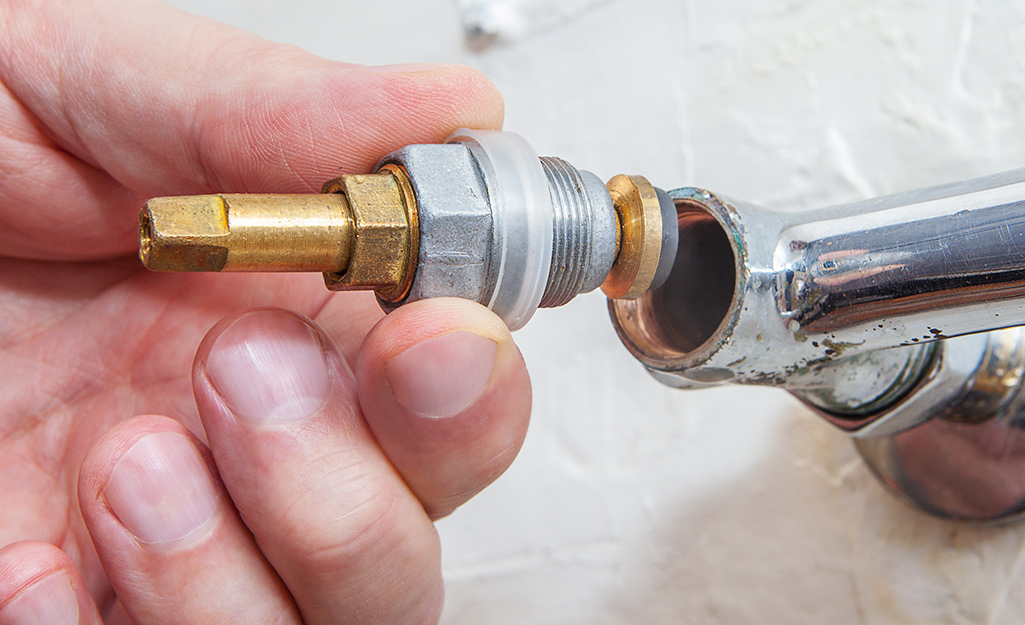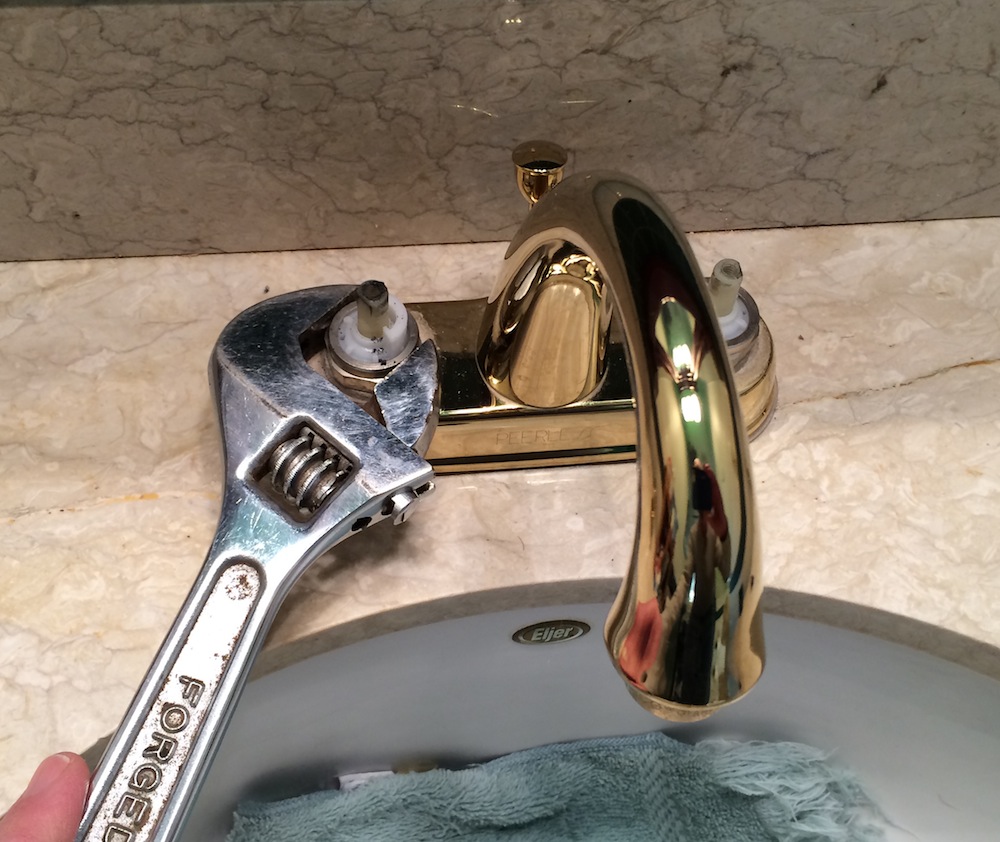Uncovering the Relevance of Resolving a Leaking Faucet
Uncovering the Relevance of Resolving a Leaking Faucet
Blog Article
What are your thoughts and feelings on What Causes Leaky Faucets & How To Fix Them?

Leaking taps may look like a minor aggravation, however their impact surpasses simply the nuisance of the noise. From wasting water to sustaining unnecessary financial prices and health threats, disregarding a trickling faucet can cause various repercussions. In this write-up, we'll explore why it's essential to resolve this typical home concern quickly and successfully.
Wastefulness of Water
Ecological Effect
Dripping faucets contribute significantly to water waste. According to the Environmental Protection Agency (EPA), a single faucet dripping at one drip per second can waste greater than 3,000 gallons of water each year. This not only stress water sources however additionally affects environments and wild animals dependent on them.
Financial Expenses
Enhanced Water Costs
Past the ecological impact, dripping faucets can pump up water expenses considerably. The gathered wastage over time translates right into greater energy costs, which might have been prevented with timely repair work.
Prospective Residential Property Damages
Furthermore, prolonged dripping can bring about damage to fixtures and surfaces bordering the tap. Water buildup can trigger staining, deterioration, and also structural problems if left neglected, resulting in additional repair service prices.
Wellness Concerns
Mold and Mildew Growth
The continuous existence of dampness from a trickling tap develops an ideal setting for mold and mildew and mold development. These fungis not just jeopardize indoor air high quality but likewise position health and wellness risks, particularly for people with respiratory system problems or allergies.
Waterborne Diseases
Stationary water in leaking faucets can become a breeding place for germs and various other virus, raising the risk of waterborne illness. Impurities such as Legionella microorganisms grow in stagnant water, potentially resulting in major health problems when consumed or inhaled.
DIY vs. Professional Fixing
Advantages and disadvantages of Do It Yourself Repair
While some might try to fix a leaking tap themselves, do it yourself repairs include their very own collection of obstacles. Without proper understanding and devices, do it yourself efforts can exacerbate the issue or result in insufficient repair services, lengthening the trouble.
Advantages of Working With a Specialist Plumber
Working with a professional plumber ensures that the underlying cause of the dripping faucet is addressed effectively. Plumbers have the experience and tools to identify and repair tap concerns effectively, saving time and minimizing the risk of more damage.
Step-by-Step Guide to Dealing With a Dripping Faucet
Tools Needed
Before trying to repair a dripping tap, gather the required tools, consisting of a flexible wrench, screwdrivers, substitute components (such as washing machines or cartridges), and plumber's tape.
Common Tap Issues and Their Solutions
Determine the sort of faucet and the certain issue triggering the drip. Usual problems consist of worn-out washers, rusty shutoff seats, or defective O-rings. Describe manufacturer instructions or on the internet tutorials for detailed guidance on repair work.
Safety nets
Normal Upkeep Tips
To avoid leaking taps, execute regular upkeep such as cleaning aerators, inspecting for leaks, and replacing worn-out parts quickly. Additionally, think about setting up water-saving devices or upgrading to much more effective fixtures.
Importance of Prompt Repairs
Addressing trickling taps as quickly as they're discovered avoids further water wastefulness and prospective damage, ultimately conserving both water and cash over time.
Impact on Residential Or Commercial Property Worth
Understanding of Well-Maintained Home
Maintaining a property in good condition, consisting of addressing upkeep issues like leaking faucets, boosts its perceived value and worth among possible buyers or occupants.
Impact on Resale Value
Qualities with well-maintained plumbing fixtures, consisting of taps, command higher resale values in the realty market. Attending to trickling taps can contribute to a positive perception throughout building inspections and negotiations.
Environmental Obligation
Private Contribution to Conservation
Taking obligation for taking care of leaking taps straightens with more comprehensive initiatives towards water conservation and environmental sustainability. Every individual's actions jointly make a substantial effect on protecting precious resources.
Lasting Living Practices
By focusing on timely repair work and adopting water-saving behaviors, people contribute to lasting living methods that benefit both existing and future generations.
Final thought
Addressing a trickling faucet surpasses plain benefit; it's an essential action toward saving water, reducing monetary costs, and securing health and residential property. Whether through DIY fixings or professional help, taking action to deal with dripping taps is a little yet impactful method to advertise accountable stewardship of sources and add to a healthier, more sustainable future.
How to Fix a Leaky Faucet: Step-by-Step Repair Guide
A leaky faucet may seem like a simple annoyance, but if it's not fixed promptly, that leak could cost hundreds to potentially thousands. From water damage to mold, mildew, and high water bills, even a tiny leak can be catastrophic if left unattended. Damage like this can even affect the overall value of your home, so it's important to take the right approach for leaky faucet repair. You may need the help of a plumber in some cases, but we've got a few tips you can try on how to fix a leaky faucet before calling the pros.
Four Faucet Types
When you're learning how to fix a leaky faucet, the first step is knowing what kind of faucet you're working with! There are four common types.
Cartridge Faucets
Cartridge faucets come in one- or two-handled varieties. In one-handled cartridge faucets, hot and cold water combines in a single cartridge. In the two-handled versions, hot and cold water are controlled separately and mixed in the faucet.
Ball Faucets
Ball faucets have a single lever you push up and down to adjust the pressure and rotate to change the temperature. A slotted metal ball controls the amount of water allowed into the spout.
Compression Washer Faucets
They're the oldest type of faucet, but they're still used in many homes — especially older ones. Compression faucets have two separate handles that, when turned, raise or lower the washer that seals a water valve. This valve stops water from flowing through the faucet when it is turned off.
Disc Faucets
Disc faucets rarely need to be repaired due to their maintenance-free design. The water flow is controlled by two discs — the upper one raises and lowers against a fixed lower disc, creating a watertight seal. If your disc faucet starts leaking, you may need to replace the seals or clean residue buildup from the inlets.
Fixing a Leaky Faucet
Step 1: Turn Off the Water
Whether you're learning how to fix a leaky bathtub faucet or how to fix a leaky kitchen faucet, always turn off the water supply to your working area when you're fixing a leak. The last thing you want is a flood added to your list of things to fix.
Look for the shutoff valves below your sink or around the tub and turn them clockwise to stop the water flow. If your faucet doesn't have shutoff valves, you may need to turn off the water for the whole house. Check to make sure it's off by turning the faucet on. If nothing comes out, you're ready to start the repair.
Step 2: Take Apart the Faucet
How you disassemble your faucet depends on the type of fixture you have. You can use a flathead screwdriver to remove the caps on top of the handle or handles for cartridge and compression faucets. Inside, you should see handle screws. Unscrew these with a screwdriver to remove the handle.
Disc- and ball-style faucets will typically have an inlet screw near the handle, and removing that will reveal the interior of the faucet.
Detach the Valve Stem
For cartridge- and compression-style faucets, you'll see the inner valve stem or cartridge once you remove the faucet handles. If you have a compression faucet, unscrew the brass valve stem. If you have a cartridge faucet, pull out the cartridge. If your cartridge has been in place for a while, it may require some tools or extra force to remove it due to mineral deposits.
Examine and Replace Parts
Once you've removed the parts, check them out to confirm what needs to be replaced. You may see corroded rubber washers, O-rings, stems, or cartridges. On a ball-style faucet, check the seats and springs for damage.
If you need to repair a leaky disc faucet, check the inlet and seals on the lower disc.
Once you determine what parts must be replaced, visit your local hardware store. Bring the damaged parts with you to ensure you can purchase the correct components to replace them.
Clean Valves and Faucet Cavity
If you've removed a stem or cartridge, you may notice mineral buildup in the faucet's threads. Use white vinegar to clean the valve seat by soaking it for a few minutes, then scrub it away with a soft toothbrush and rinse with warm water. You can also clean the interior of the faucet in the same way.
Reassemble the Faucet
Once your faucet is cleaned and the required parts have been replaced, it's time to reassemble it. Put the pieces back together and slowly turn the water supply back on. Doing this slowly is crucial because too much initial water pressure can damage the new hardware you've just installed.
https://homewarranty.firstam.com/blog/how-to-fix-leaky-faucet

As an avid reader about Leaky Faucets: Why They Happen & What to Do About Them, I imagined sharing that piece of content was worthwhile. For those who enjoyed our article please be sure to pass it around. Thanks so much for taking the time to read it.
Report this page